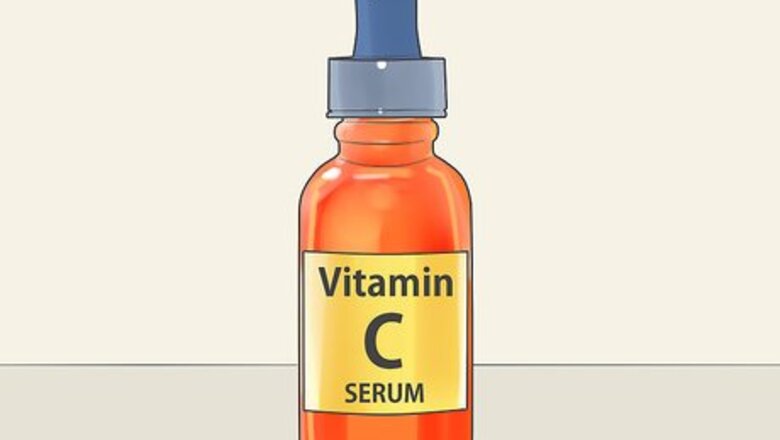
views
Using Over-the-Counter Products
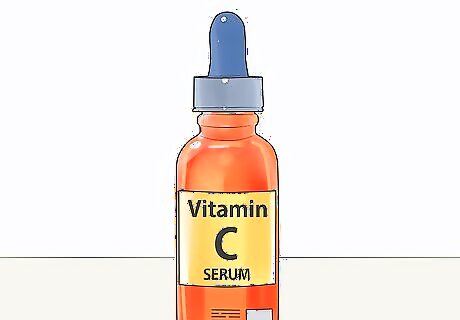
Try a skin serum with vitamin C for a natural treatment. Vitamin C helps lighten highly pigmented skin, but it doesn't affect the surrounding skin. All you need to do is clean your skin, then put 5-6 drops of a vitamin C serum on the area. Apply it before you put on sunscreen in the morning.
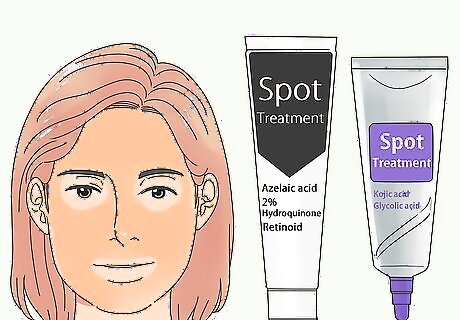
Choose a spot treatment to target just the dark areas. Just treating the dark areas will allow you to pick the parts of your skin you want to lighten. Plus, it can be easier on your budget, since you're not using it over a larger area. Apply a small amount just to the affected area, either in the morning or at night. Look for ingredients like azelaic acid, 2% hydroquinone, kojic acid, glycolic acid, retinoid, and vitamin C. Usually, these are labeled as "spot treatment" serums. Be careful purchasing these serums online. Make sure you buy a spot treatment or medication formulated in a country with good regulatory practices, such as the U.S. or U.K. Medications produced without regulation may contain harmful ingredients, such as steroids or mercury.
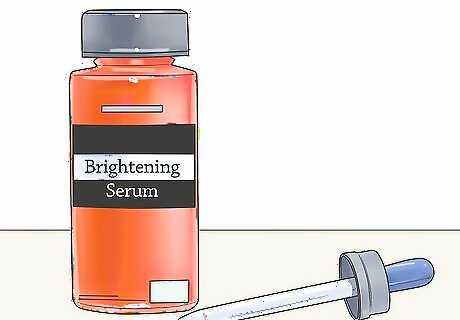
Pick a serum that helps even out all of your skin if you have lots of dark spots. While spot treatments are great, a serum that works over the whole area can make your life easier. It can make your skin tone more even overall, not just lighten the darker areas. You generally apply serums like this once or twice a day.The main ingredients to look for are tetrapeptide-30, phenylethyl resorcinol, tranexamic acid, and niacinamide. These are typically labeled as "brightening serums."
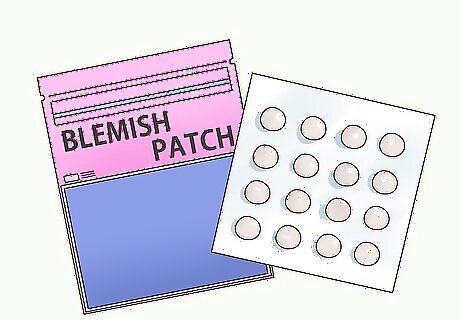
Put on a pimple or blemish patch to unclog pores and lighten spots. Blemish patches are made specifically for dark spots. Put one on each spot at night and to lighten discoloration. Look for a product that contains retinol, peptides, and niacinamide. Pimple patches unclog pores and lightly exfoliate the area. You can find these online or at most beauty stores.
Seeing a Dermatologist
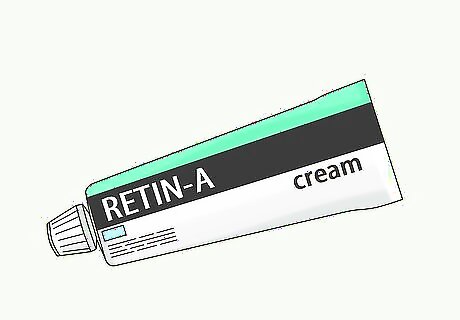
Request topical retinoid cream to remove and prevent dark spots. Apply the cream at night to remove light discolorations. In addition, it can keep you from developing spots in the future, but it takes several months to work. Your dermatologist can prescribe a prescription-strength version of this for the best results. Put it on at night since it may make you more sensitive to the sun.
Ask your dermatologist about prescription hydroquinone. Hydroquinone is a lightening cream that can help reduce the appearance of dark spots. You can purchase a 2% preparation of hydroquinone over the counter, but if that hasn't helped, you might ask your doctor about a 4% formula, which is only available with a prescription.
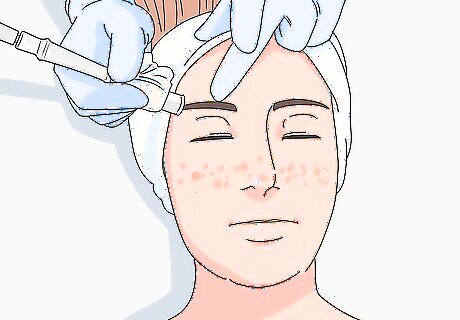
See if microdermabrasion will lighten discoloration. This treatment is basically like sanding down your skin. It uses very small particles to exfoliate your dead skin. It's doesn't involve chemicals at all, but you will need repeated treatments to notice a difference. This process could make skin conditions like small red veins on your face and rosacea more noticeable, so this treatment isn't for everyone. The main side effects of this procedure are redness and scabbing, though not everyone is affected in this way.
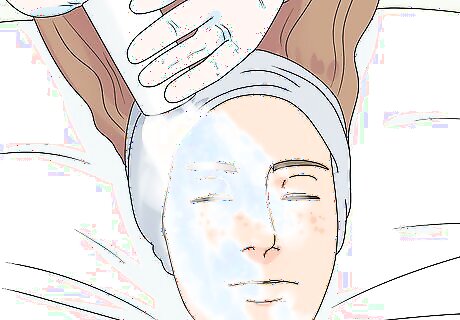
Talk about using cryotherapy to get rid of small spots. This treatment will work best for small dark spots, such as age spots, because the dermatologist will apply a cotton swab dipped in liquid nitrogen to your skin. The process of freezing the skin destroys it along with the pigment, and new, lighter skin grows in. This can cause discoloration and scarring.
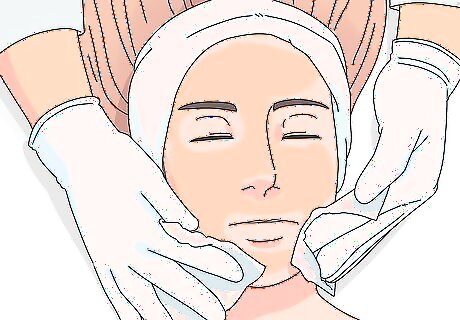
Discuss chemical peels with your dermatologist for heavier discoloration. Chemical peels take off the top layer of the skin using chemicals. See a professional for this treatment for best results. Keep in mind that you'll likely need more than one treatment and the results aren't permanent. This can cause skin irritation, and there is a risk that your skin may change color permanently. Make sure you wear sunscreen after this treatment, as your skin will be sensitive to the sun. Also, it's a good idea to schedule your chemical peel for the fall or winter, when the sun's rays aren't as strong.
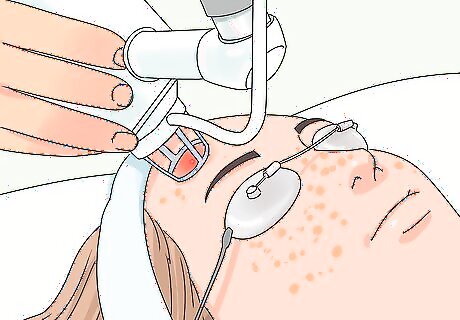
Ask about laser treatment. Lasers focus light on the area and can reduce hyperpigmentation. Most dermatologists will offer this treatment, though they may offer different variations. One of the best is the kind that uses a rapid rate to treat the area with a focused beam. Laser treatments are especially helpful for sunspots. Also, discuss whether the treatment will produce a cooling blast after the laser, which helps prevent the treatment from causing irritation. While this can cause skin irritation, it's generally less irritating than other treatments. However, you should wear sunscreen after getting this treatment.
Preventing Spots
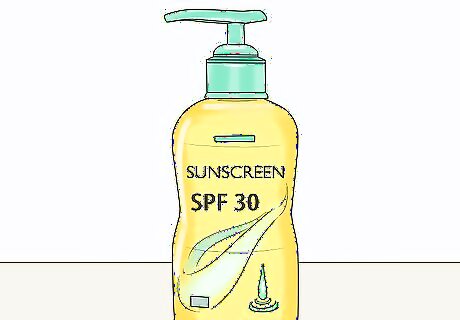
Apply a broad-spectrum sunscreen with SPF 30 or higher every day. The sun will just make dark spots worse over time, and it can even cause new spots. Every time you go outside, wear sunscreen to protect your skin from the sun, particularly where you have dark spots. To make it easier, pick a moisturizer with sunscreen in it so you can apply both at once.
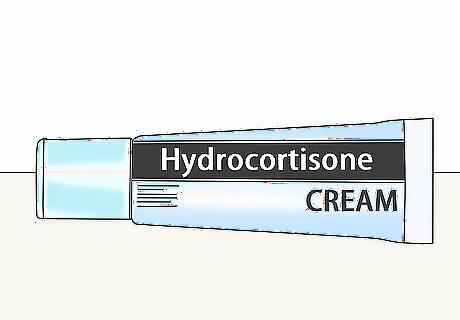
Try a hydrocortisone cream on zits. Pimples can be annoying, but if you pop them or pick at them, they can turn into dark spots that hang around for months, which is even more annoying. Apply a pea-sized amount of hydrocortisone cream several times a day to the zits to help get rid of them instead. A 1% hydrocortisone cream can decrease the redness and irritation, and you won't be as tempted to pick at your pimples.
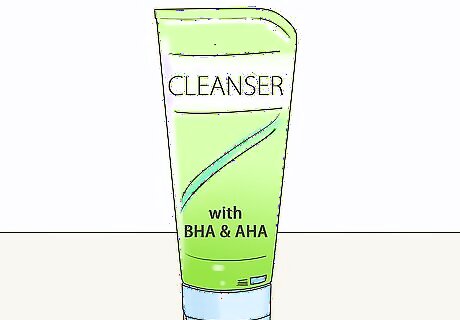
Wash with a BHA or AHA cleanser. These cleansers, which contain beta hydroxy acids or alpha hydroxy acids, are typically used to treat acne. However, they can also help prevent pimples by pulling off dead skin. Plus, it helps keep your pores clear. However, you should avoid these cleansers if you have dry or sensitive skin.

Discuss your medications with your doctor. Some medications have dark spots as a side effect. If you've noticed you've developed dark spots after starting a new med within a few months, ask your doctor if that could be a side effect. Keep taking the medication until you get more information from your doctor.

















Comments
0 comment